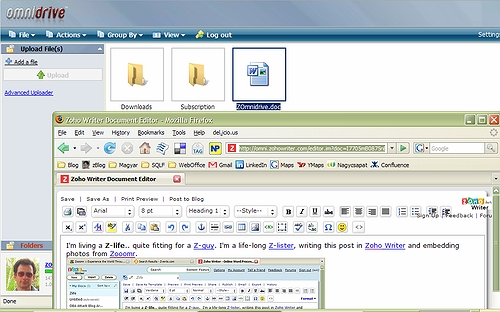(Updated)
It’s become fashionable to beat up large corporations. I understand the feeling; having done my time in the corporate world I know I’m not going back … but that said, not everyone is a freelancer, startup entrepreneur or just “old-fashioned” small business employee. Most of today’s workforce are still corporate employees, and large companies produce most of our GDP, like it or not.
Which is why I don’t understand Stowe Boyd’s rant against group-oriented collaboration tools:
“The basic model of 90’s era collaboration, a la Lotus Notes, is all about the group. Information was managed in group-based repositories, then passed around for review, or published to intranet portals via customized apps. Information era workflows where people are first and foremost occupiers of roles, not individuals, and the materials being created are more closely aligned with groups than individuals.
Web 2.0 social tools — largely — work around a different model. Social networks — explicit ones like MySpace and Facebook, or implicit ones in social media — are really organized around individuals and their networked self-expression. I am writing this blog post, and publishing it, personally. It is not the product of some workgroup. It is not an anonymous chunk of text on a corporate portal. My Facebook profile pulls traffic from my network of contacts, sources I find interesting, and the chance presence updates of my friends.
I don’t need to participate in groups to exist or to share — or to matter — in this world.
On the other hand, Notes and Sharepoint, and even their webby second cousins, like Basecamp, are principally organized around groups. I have argued in the past about the work federation design flaw in Basecamp (see here: Basecamp and The Federation Of Work), but the basic problem is the wrong emphasis on belonging to groups instead of being connected to individuals. “
Well, Stowe may not need to participate in a group, being a successful freelancer, but the average corporate employee does, and they are IBM’s target market. Group-thinking, collaboration is as important as ever, not only to enable individuals co-create better, but also, as a secondary effect to preserve knowledge – should the individual leave, business does not come to screeching halt.
Quickr or Slowr, Lotus Connections and Sharepoint will make a killing this year. Personally, I’m quite happy I don’t have to touch them – but then again, like Stowe, I’m not a corporate employee. I just don’t forget about the majority of the world, who are.
Update (1/23): Stowe’s post stirred up a bit of conversation:
- Social enterprise: Oxymoron or business logic? (Donna Bogatin @ZDNet)
- Donna Bogatin on Social Enterprise: Group-First or Me-First? (Stowe Boyd)
Tags: ibm, lotus connections, lotus notes, ibm quickr, social software, collaboration, groupware, freelance, stowe boyd



 No kidding! It’s the Microsoft Windows Vista Ultimate Limited Numbered Signature Edition!
No kidding! It’s the Microsoft Windows Vista Ultimate Limited Numbered Signature Edition!
 24SevenOffice
24SevenOffice


 (Updated)
(Updated)

Recent Comments